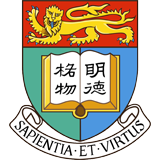A research on AI for education published in a ICIM in Oxford University ~ Prediction of students’ future development by AI and deep learning
A research paper title “Prediction model for students' future development by deep learning and Tensorflow artificial intelligence engine” was published in the 2018 4th International Conference on Information Management (ICIM) http://www.icim.org/ in the Oxford University in May 2018. The research paper was written by the core members in the e-Learning Development Laboratory including Dr. Wilton Fok, Eric Au Yeung, Ken Law, Karl Cheung and Prajna Ho. The detailed paper can be refered to: https://ieeexplore.ieee.org/document/8392818


Abstract of the paper:
Classification and prediction of students’ performance in examination are the typical challenges for educators. Various traditional data mining methods such as decision tree and association rules were used to perform classification. In recent years, the rapid development of artificial intelligence and deep learning algorithm provided another approach for intelligent classification and result prediction. In this paper, a research on how to use Tensorflow artificial intelligence engine for classifying students’ performance and forecasting their future universities degree program is studied. An appropriate and accurate forecast is important for providing prompt advice to student on program and university selection. For a more comprehensive consideration of an all rounded factors, the deep learning model analysed not only the traditional academic performance including Mathematic, Chinese, English, Physics, Chemistry, Biology and History, but also non-academic performance such as service, Conduct, Sport and Art. A few parameters in Tensorflow engine including the number of intermediate nodes and number of deep learning layers are adjusted and compared. With a data set of two thousands students, 75% of these data are used as the training data and 25% are used as the testing data, the accuracy ranged from 80% to 91%. The optimal configuration of the Tensorflow deep learning model that achieves highest prediction accuracy is determined. This study determined the factors affecting the accuracy of the prediction model.


 e-Learning Lab
e-Learning Lab